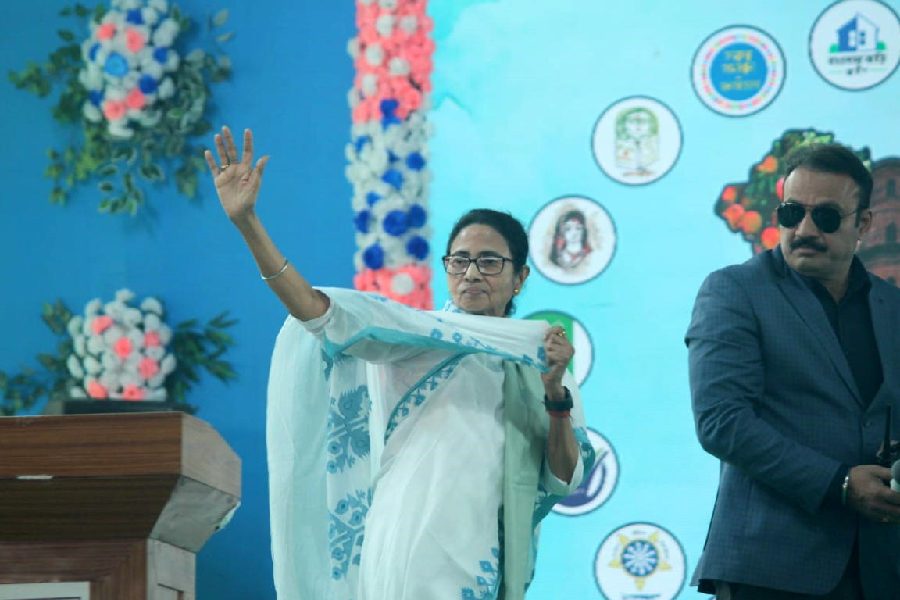Mamata Banerjee on Tuesday reiterated her “shock” that Sanjay Roy hadn’t been awarded the capital punishment by the Sealdah court and expressed her discontent with the BJP-led Centre allegedly dragging its feet on Presidential assent for the Aparajita bill passed by the Bengal Assembly.
The chief minister, during a state government event in Malda, brought up the court verdict on the rape and the murder of the junior doctor at R.G. Kar Medical College
and Hospital.
“You saw in the RG Kar case, we had said we want the death penalty. Those who commit such poishachik otyachar (ghoulish torture), if someone is danobik (monstrous), pashobik (bestial), can society be manobik (humane)? Society must be made more humane,” said Mamata.
The Bengal government on Tuesday approached Calcutta High Court challenging the Sealdah court sentencing Roy to rigorous life imprisonment till death.
“How can it be said in the judgment? A judgment I did not like. That it is not a rarest of the rare case?” added the Trinamool Congress chief, responding to the Sealdah court’s sentence.
“I believe yes, it is a rare, sensitive, and very very heinous crime. If somebody can survive after committing such a crime, they will try to commit more crimes. Protecting that is not our duty,” said Mamata.
She highlighted her qualifications as a lawyer — LLB from Jogesh Chandra Chaudhuri Law College under Calcutta University in 1982 — to substantiate her stand.
“What is the meaning of life imprisonment? We have seen in many cases, they got out in two-three years, out on parole. They commit wrongs but should we forgive?”
asked Mamata.
“Why would it be said that in this case... I am truly shocked. I was a lawyer once, I studied law... I had appeared in court on a number of occasions, I do understand the law a little,” she added.
The chief minister then attacked the Narendra Modi government at the Centre over the pending Presidential assent to the Aparajita Woman and Child (West Bengal Criminal Laws Amendment) Bill, 2024, passed by the Assembly on September 3 last year.
“For the sake of the dignity of mothers and sisters, we made the Aparajita Bill in the Assembly, in it we kept the death penalty, we kept (stern) punishment... for acid attacks too,” said the chief minister.
Governor C.V. Ananda Bose had, on September 6 last year, referred the bill for the consideration of President Droupadi Murmu.
“That bill of ours is yet to be approved by the Centre. They have been sitting on it. We want it to become a model, accepted nationally,” added Mamata.
The bill was passed at a time when the chief minister was under tremendous pressure following the alleged mishandling of the heinous crime by the ruling dispensation. With the bill, Mamata had tried to send out a message of Nabanna making an effort for something concrete, and constructive in the wake of the incident and the mass outrage in its fallout.
The bill was passed despite reservations from many quarters — including some in the Trinamool ecosystem — on the effectiveness of the move in the presence of central legislation, such as pertinent sections of the BNSS.











